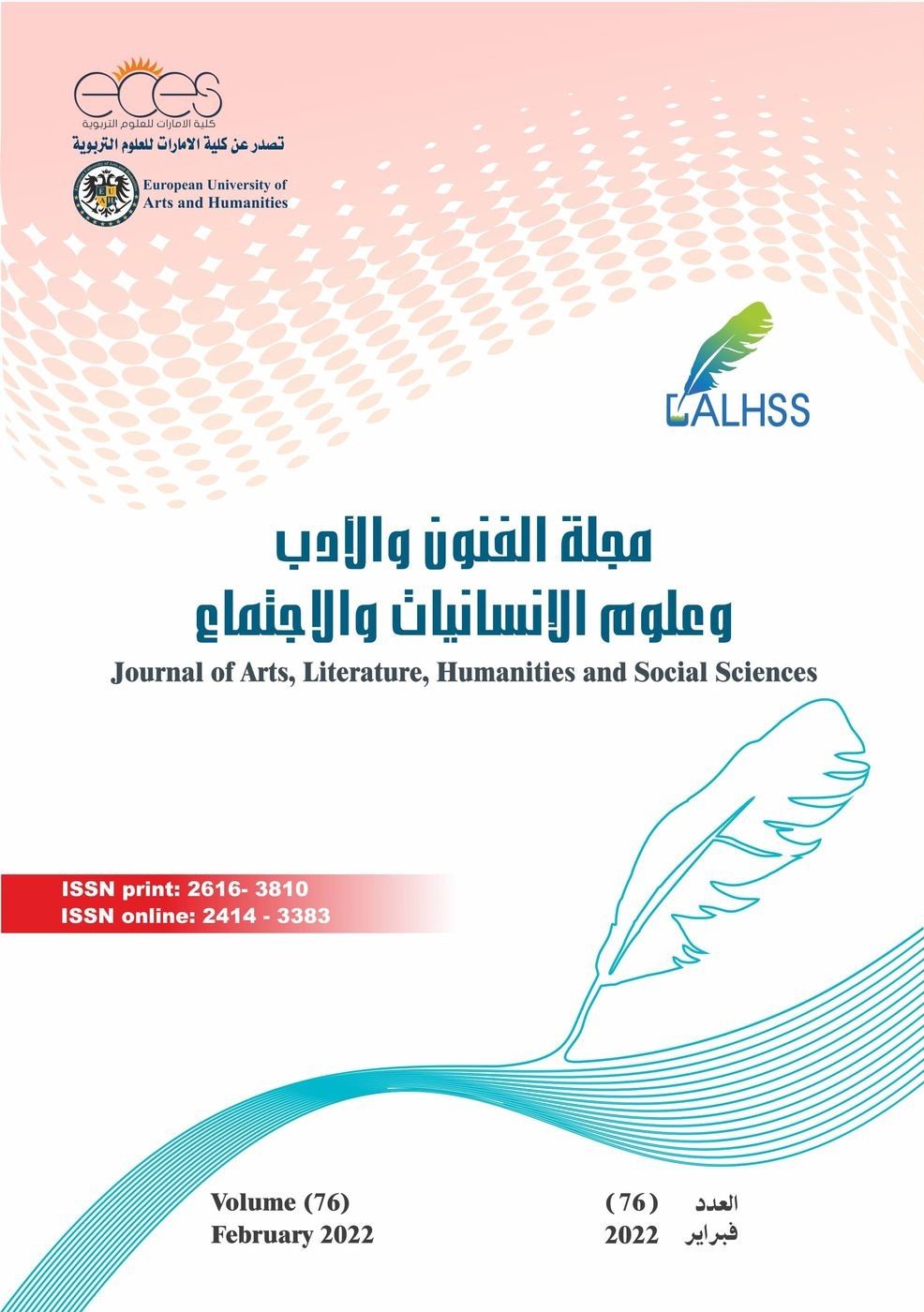Teachers' Attitudes Towards Employing E-Learning to Achieve Quality Standards in The Educational Process at The Primary Stage
Abstract
This study aimed to identify the role of e-learning in developing effective communication skills among primary school students from the teachers’ point of view and to the degree of readiness of teachers of the first basic stage in government schools in the Kingdom of Saudi Arabia to employ e-learning by researching the degree of their attitudes towards e-learning, and the level of Their competencies in using it, as well as the degree of obstacles to its application from their point of view, in addition to recognizing the role of a number of variables in their degree of readiness.
The study adopted the descriptive analytical approach, and the study community consisted of teachers of the first primary stage in government schools in the Kingdom of Saudi Arabia. The study sample consisted of (120) teachers by cluster random method. The questionnaire was used as a tool for data collection after verifying its validity and reliability, and it consisted of several distributed paragraphs. It is divided into three domains: the domain of competencies, the domain of trends, and the domain of obstacles. The study reached the following results:
- The total score for the three domains (competencies، attitudes، and obstacles) was high.
- There are no statistically significant differences in the two domains (attitudes and obstacles) due to the variables: age، daily use of the Internet، and number of courses in the field of information technology. While there are statistically significant differences in the domain (competencies) due to these variables.
References
2. بدر، سهام، (2002)، اتجاهات الفكر التربوي في مجال الطفولة، مصر، مكتبة الانجلو المصرية.
3. جامل، عبد الرحمن، (2014)، الكفايات التعليمية في القياس والتقويم، الأردن، دار المناهج للنشر والتوزيع.
4. حلمي الفيل (2008)، فعالية بعض استراتيجيات ما وراء المعرفة في تنمية الذكاء الوحداني لدى طلاب كليه التربية النوعية جامعة الاسكندرية، رسالة ماجستير، منشورة، كلية التربية جامعة الاسكندرية.
5. الحناوي، مجدي، (2012)، تطوير الحقائب التعليمية من التقليدية الى الالكترونية، فلسطين، جامعة القدس المفتوحة.
6. الزين، اميمة سميح، (2016)، التحول لعصر التعلم الرقمي تقدم معرفي أم تقهقر منهجي، المؤتمر الدولي الحادي عشر: التعلم في عصر التكنولوجية الرقمية-مركز جبل البحث العلمي، لبنان، ص 9-24.
7. السيد عبد المولى (2011) معايير الجودة في توظيف اعضاء هيئة التدريس للتعليم الإلكتروني، بحث مقدم الى المؤتمر، الغربي الدولي لضمان جودة التعليم العالي، المنعقد في جامعه الزرقاء ـ الأردن في الفترة من (10-12) مايو 2011م.
8. شحاتة، حسن واخرون، (2003)، معجم المصطلحات التربوية والنفسية، مصر، الدار المصرية اللبنانية
9. الطحان، جاسم محمد، (2014)، التعليم الالكتروني آفاق حديثة لتطوير الأداء الاقتصادي، الامارات العربية المتحدة، دار الكتاب الجامعي.
10. الطوالبة، محمد عبد الرحمن، والمشاعلة، مجدي سليمان، (2009)، تصورات معلمي التربية الإسلامية للتعلم الالكتروني، مجلة دراسات-العلوم التربوية-الأردن، 36(2)، ص 82-95.
11. عبد العزيز، حمدي، (2008)، التعليم الالكتروني، الأردن، دار الفكر.
12. على، محمد السيد، (2005)، تكنولوجيا التعليم والوسائل، مصر، دار وكتبة الاسراء.
13. الفرا، يحيى، (2003)، التعلم الالكتروني: رؤية من الميدان، الندوة الدولية الأولى للتعلم الالكتروني والمقامة بمدارس الملك فيصل بالرياض، وزارة التربية والتعليم السعودية، لإدارة العامة للتربية والتعليم بمنطقة مكة المكرمة-جدة.
14. فؤاد أبو حطب وآمال صادق (1996) علم النفس التربوي، القاهرة، مكتبة الانجلو المصرية.
15. النعواشي، قاسم، (2010)، العالم في غرفة الصف، الأردن، دار الأوائل للنشر.
16. عبدالله العامري، المعلم الناجح، دار أسامة، عمان، الأردن، ط1، 2009، ص13.
17. محمود محمد الحيلة، مهارات التدريس الصفي، دار المسرة، عمان، ط2، 2007، ص34.
18. الشبلي إبراهيم مهدي، التعليم الفعال والتعلم الفعال، ط1، دار الأمل، أربد، 2000، ص31.
19. علاوي، محمد حسن. (2004)، مدخل علم النفس الرياضي، ط4، مركز الكتاب للنشر، القاهرة.
20. Affouneh S, Salha S, Khlaif ZN. (2020) Designing Quality E-Learning Environments for Emergency Remote Teaching in Coronavirus Crisis. Interdiscip J Virtual Learn Med Sci.11(2):1-3
21. Koumi, J (2006). Designing Educational Video and Multimedia for Open and Distance Learning. Routledge, England.
22. Luterbach, K. & Brown, C. (2011). Education for the 21st Century. International Journal of Applied Educational Studies, 10(2), PP 14-32
23. UNESCO “the United Nations Educational, Scientific and Cultural Organization”. (2011). Transforming Education: The Power of ICT Policies. UNESCO, Paris.
24. Uluyol, C. & Sahin, S. (2016). Elementary School Teachers’ ICT Use in the Classroom and Their Motivators for Using ICT. British Journal of Educational Technology, 47(1), PP 65–75. Retrieved form: https://doi:10.1111/bjet.12220
25. 6. Collies, B. 1996: Tele Learning in A Digital Word The Future of Distance Learning, London, International Thomson, Computer Press



